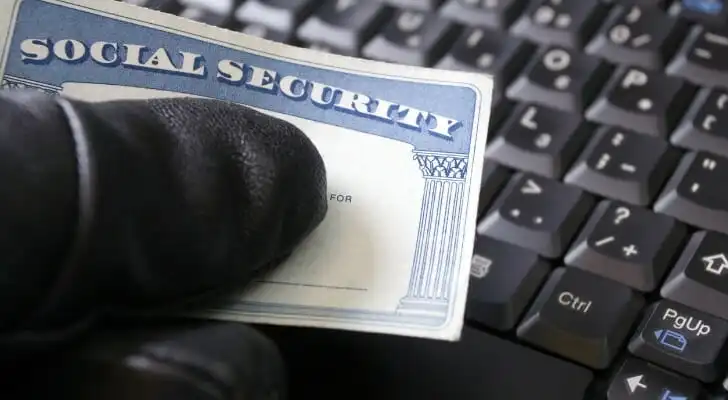

Sorting through the financial aftermath of a divorce can be complex, especially when determining who is responsible for credit card debt in a divorce. Typically, the responsibility for shared credit card debt depends on the nature of the debt itself and one of two sets of state laws: community property or equitable distribution. Community property states generally split debt accrued during the marriage equally, while equitable distribution states consider various factors to decide fair allocation. Understanding these distinctions can help divorcing spouses prepare for financial negotiations and avoid unexpected liabilities.
For long-term financial planning that is tailored to your unique situation, talk to a financial advisor.
In community property states, debts incurred during the marriage are considered joint responsibilities, regardless of who incurred them. This means both spouses are equally liable for credit card debt accumulated from the date of marriage until separation. Several states, including California and Texas, follow these guidelines, aiming for a 50/50 split of both assets and debts.
In Alaska, divorcing couples can opt into community property status through a written agreement, although it is not a community property state by default. All other states adhere to equitable distribution, where debts and assets are divided fairly, but not necessarily equally. The court considers various factors, such as each spouse’s financial situation, contributions to the marriage and future earning potential.
In these states, the court will determine who is responsible for the credit card debt based on fairness. If one spouse is found to have made the majority of the charges for personal use, they might be assigned a larger portion of the debt. Conversely, if the debt was accumulated for joint expenses, it might be divided more equally.

Prenuptial agreements can play a significant role in determining who is responsible for credit card debt after a divorce. These agreements can specify how debts will be divided, potentially protecting one spouse from being held responsible for the other’s credit card debt. It’s essential to have a clear and legally binding prenuptial agreement to avoid disputes during the divorce process.
Divorce decrees and court orders outline the responsibilities of each spouse regarding credit card debt. However, it’s important to note that these orders are not binding on the creditors. Creditors can pursue either spouse for payment, regardless of the terms of the divorce decree. This means that even after the courts identify who is responsible for credit card debt after a divorce, the creditors themselves can seek payment from either party if the person responsible misses payments. Therefore, both parties must ensure that debts are paid as ordered to avoid negative impacts on their credit reports.
Before, during and after a divorce, it’s vital to take steps to protect your credit score. Joint credit card accounts can impact both parties’ credit scores, even after divorce. To mitigate this, divorcing couples should aim to close joint accounts and open individual ones. This prevents future financial actions by one ex-spouse from affecting the other’s credit.
Proactively contacting creditors to explain the divorce situation and requesting to transfer balances to individual accounts can help protect credit scores. Creditors may also offer financial advice or solutions tailored to the circumstances, which can be beneficial during this transition.
Monitoring credit reports regularly ensures any discrepancies or unauthorized charges are promptly addressed. It also helps track progress in building an individual credit history post-divorce. Using free credit monitoring services can aid in this vigilance. Speaking with a financial advisor can also help you navigate your financial obligations after a divorce.

Dealing with credit card debt during a divorce requires a clear understanding of state laws and proactive financial management. The distinction between community property and equitable distribution states significantly impacts how debt is allocated, making it essential for divorcing spouses to be informed and prepared for these financial negotiations.
Photo credit: ©iStock.com/South_agency, ©iStock.com/gpointstudio, ©iStock.com/Liubomyr Vorona
Read More About Personal Finance



More from SmartAsset
SmartAsset Advisors, LLC ("SmartAsset"), a wholly owned subsidiary of Financial Insight Technology, is registered with the U.S. Securities and Exchange Commission as an investment adviser. SmartAsset's services are limited to referring users to third party advisers registered or chartered as fiduciaries ("Adviser(s)") with a regulatory body in the United States that have elected to participate in our matching platform based on information gathered from users through our online questionnaire. SmartAsset receives compensation from Advisers for our services. SmartAsset does not review the ongoing performance of any Adviser, participate in the management of any user's account by an Adviser or provide advice regarding specific investments.
We do not manage client funds or hold custody of assets, we help users connect with relevant financial advisors.
This is not an offer to buy or sell any security or interest. All investing involves risk, including loss of principal. Working with an adviser may come with potential downsides such as payment of fees (which will reduce returns). There are no guarantees that working with an adviser will yield positive returns. The existence of a fiduciary duty does not prevent the rise of potential conflicts of interest.